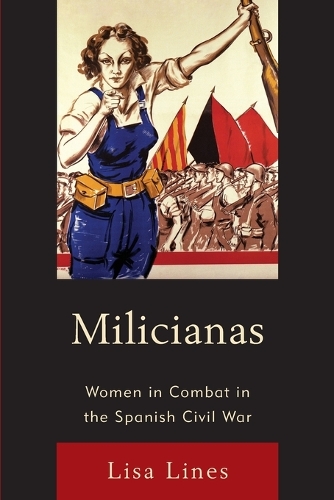
Milicianas: Women in Combat in the Spanish Civil War
(Paperback)
Publishing Details
Milicianas: Women in Combat in the Spanish Civil War
By (Author) Lisa Lines
Bloomsbury Publishing PLC
Lexington Books
10th March 2015
United States
Classifications
Professional and Scholarly
Non Fiction
Modern warfare
European history
Gender studies: women and girls
946.081082
Physical Properties
Paperback
226
Width 154mm, Height 229mm, Spine 17mm
349g
Description
During the first few days of the Spanish Civil War, women played an integral role in the spontaneous uprising that prevented the immediate success of the Nationalist coup. Around one thousand of these women went on to join the militias who fought at the front. Women also played an important role in the defense of cities, with another several thousand forming sections of the armed rearguard. Indeed, womens participation in the anti-fascist resistance constituted one of the greatest mass political mobilizations of women in Spains history. Milicianas provides a comprehensive picture of what life was like for the women who fought during the first year of the civil war, focusing on how the women themselves viewed this experience. It demonstrates that the significance of the miliciana phenomenon lies in the fact that these women took up arms in relatively large numbers, were self-motivated, participated in combat equally with their male comrades, and played an extensive and sophisticated military role. By late 1936, attitudes towards women in combat began to change drastically, and by March 1937, the majority of milicianas had been removed from their combat positions. Though there existed a consensus around this issue among the male leadership of both the Republican government and left-wing political groups, female combatants viewed this turn of events differently. The majority of the milicianas had deep reservations about their recall from the front, and saw it as a retreat from the gains women had made during the war and revolution. Indeed, while the political leadership within the Republic presented numerous arguments for why it was necessary to remove women from combat, this book argues that the reason it was initially considered acceptable for women to fight, and then seen as undesirable eight months later, was connected to the course of the social revolution.
Reviews
Lines hauls the milicianas from the margins of history and exposes themwith both sympathy and rigorto the scholarly appraisal they deserve. This is a book for all who are interested in the Spanish Civil War. -- Peter Monteath, The Flinders University of South Australia
Author Bio
Lisa Lines is an independent historian and director and head editor of Elite Editing, Australias largest academic editing service.
